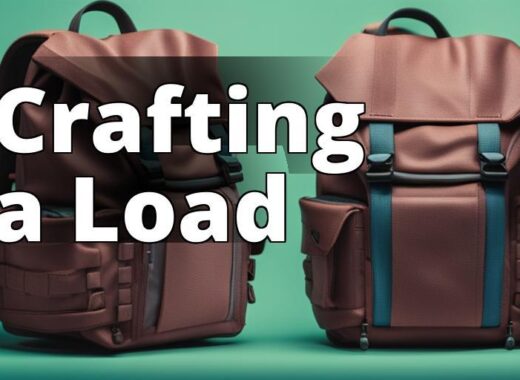Are you planning a trip or in the market for a new bag, but confused about whether to choose a backpack or rucksack? While these terms are often used interchangeably, they are not the same thing. Understanding the differences between backpacks and rucksacks can help you make an informed decision about which bag is right for your needs.
| Type | Description | Usage |
|---|---|---|
| Daypack | A small backpack designed for day trips or shorter hikes. Usually has a capacity of 20-30 liters. | Day trips, hikes, commuting |
| Hydration backpack | A backpack with a built-in hydration system, usually a bladder and hose for hands-free drinking. | Hiking, biking, running |
| Travel backpack | A backpack designed for travel, often with a removable daypack and multiple compartments for organization. | Travel, backpacking |
| Frame backpack | A backpack with an internal or external frame for support and weight distribution. | Hiking, backpacking |
| Tactical backpack | A backpack designed for military or tactical use, often with MOLLE webbing for attaching gear. | Military, camping, hiking |
| Expedition backpack | A large backpack designed for multi-day or mountaineering trips, often with a capacity of 80 liters or more. | Mountaineering, backpacking, camping |
Backpack vs. Rucksack: Which One is Right for You?
- Learn the difference between a backpack and rucksack
- Understand the history and origin of the two
- Identify the design, capacity, comfort, and usage differences between the two
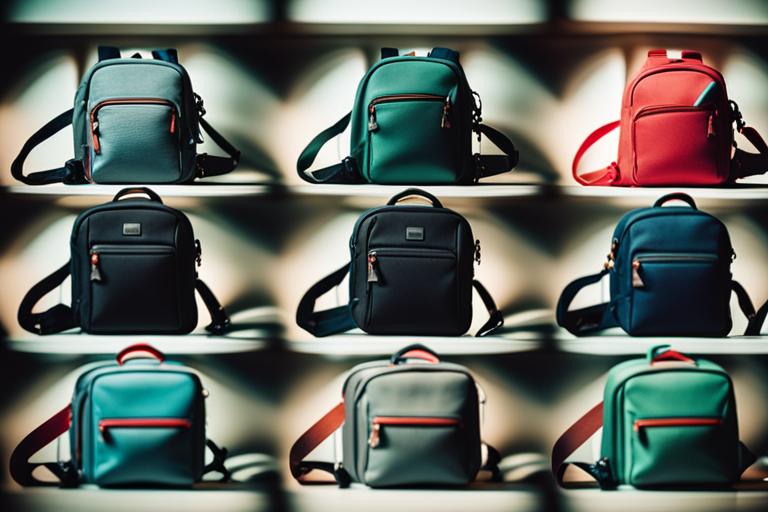
What Are Backpacks and Rucksacks?
Backpacks and rucksacks are bags designed to be carried on your back. The primary difference between them is their size and intended use.
A backpack is a smaller, more streamlined bag, usually with a capacity of 20-30 liters. They often have a single main compartment and a few smaller pockets for organization. Backpacks are ideal for shorter trips, commuting, and hiking.
A rucksack, on the other hand, is a larger bag designed for longer trips and heavier loads. They typically have a capacity of 40-80 liters or more and have multiple compartments and pockets for organization. Rucksacks are ideal for camping, backpacking, and military purposes.
History and Origin of Backpacks and Rucksacks
The term “backpack” originated in the United States in the early 1910s. The first backpacks were designed for hiking and mountaineering and were made from canvas or leather. They were typically small and had simple drawstring closures.
The term “rucksack” originated in Germany in the late 19th century. The word “rucksack” is a combination of the German words “rücken,” meaning “back,” and “sack,” meaning “bag.” Rucksacks were originally used by the German military and were designed to carry heavy loads over long distances.
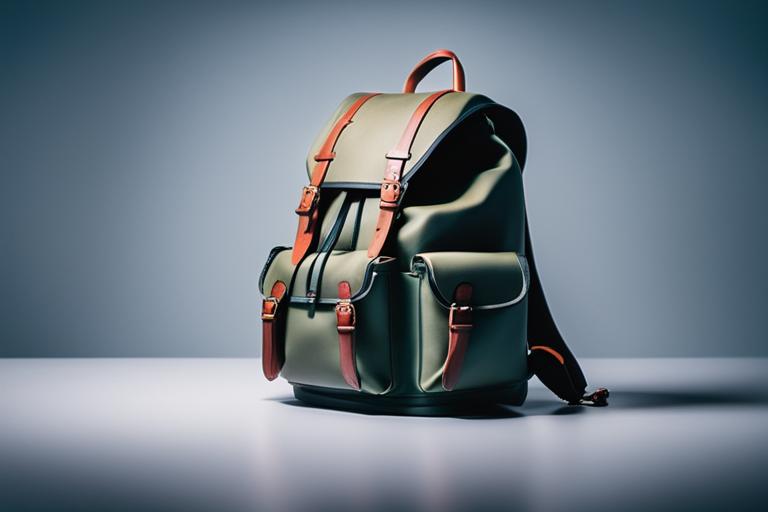
Design Differences
Backpacks and rucksacks differ in their design and features. Backpacks are smaller and more compact, with a streamlined design to keep them close to your body. They’re often made of lightweight materials like nylon or polyester and may have a laptop sleeve or hydration bladder compartment.
Rucksacks, in contrast, are larger and bulkier, with a more rectangular shape. They’re often made of heavier-duty materials like canvas or Cordura and have external attachment points for gear like ice axes or trekking poles. Rucksacks are designed for longer trips, so they usually have more compartments and pockets for organization.
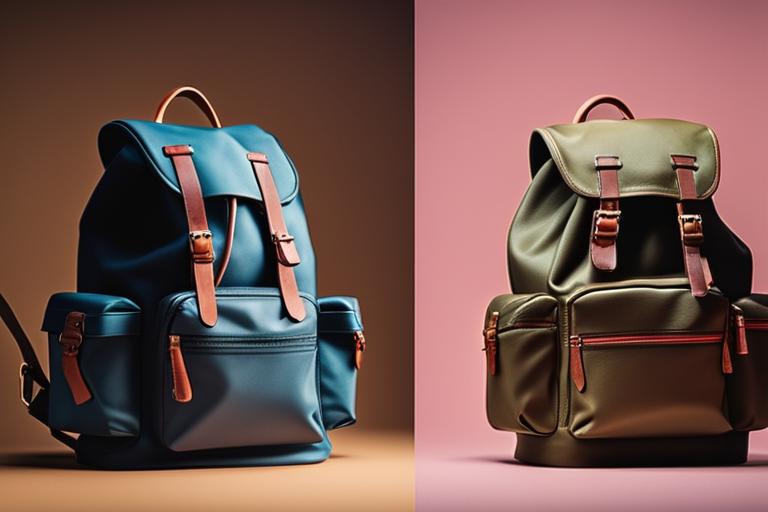
Capacity and Durability
Backpacks and rucksacks also differ in their capacity and durability. Backpacks have a smaller capacity of 20-30 liters, while rucksacks can hold 40-80 liters or more. Rucksacks are designed to carry heavier loads over longer distances, so they’re usually more durable than backpacks. They often have reinforced stitching and straps and are made of heavy-duty materials that can withstand wear and tear.
Backpacks, on the other hand, are lighter and more compact, so they’re not as durable as rucksacks. They’re designed for shorter trips and lighter loads, so they don’t need to be as rugged.
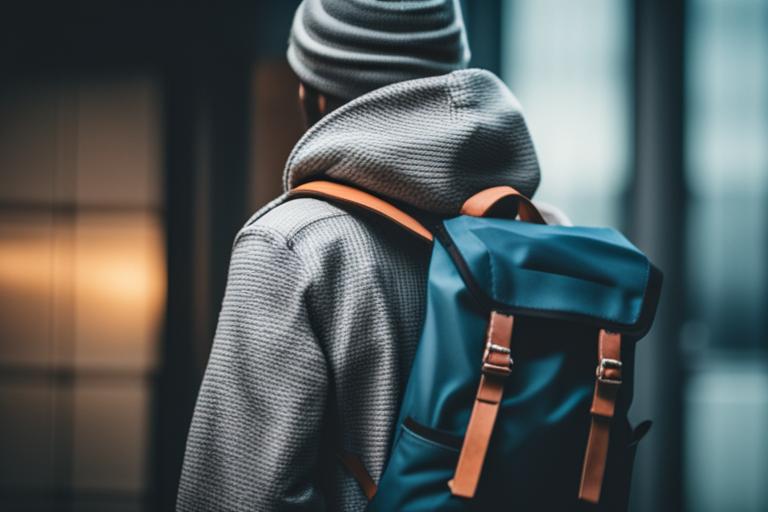
Comfort and Fit
Comfort and fit are also important considerations when choosing between a backpack and rucksack. Backpacks are more form-fitting and have a streamlined design that can make them more comfortable to wear for extended periods. They often have padded shoulder straps and back panels for added comfort.
Rucksacks, however, are designed to carry heavier loads, so they often have more support features like hip belts and chest straps. These features help distribute the weight of the load more evenly and reduce strain on the shoulders and back.
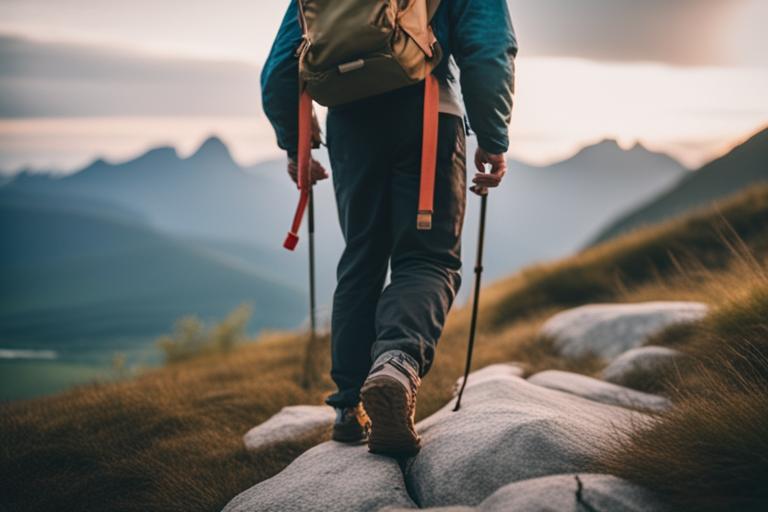
Purpose and Usage
Finally, the purpose and usage of the bag is an important factor to consider. Backpacks are ideal for shorter trips and commuting, as they’re smaller and more compact. They’re also great for hiking and traveling, as they’re easy to carry around.
Rucksacks are designed for longer trips and heavier loads, making them ideal for camping, backpacking, and military purposes. They’re larger and more spacious than backpacks, so they can carry all the gear you need for a longer trip.
Pros and Cons
Here are some pros and cons to consider when choosing between a backpack and rucksack:
| Backpacks | Rucksacks |
|---|---|
| Smaller and more compact | Larger and more spacious |
| Ideal for shorter trips and commuting | Ideal for longer trips and heavier loads |
| Less durable | More durable |
| More form-fitting and comfortable | More support features for heavier loads |
| Smaller capacity | Larger capacity |
| More breathable | Less breathable |
Personal Story: Choosing the Right Bag for a Hiking Trip
Before I went on my first hiking trip, I was faced with the decision of choosing between a backpack and a rucksack. I had heard from friends that a backpack was more versatile and could be used for different types of activities, while a rucksack was more specialized for hiking and camping trips.
After doing some research and trying on different bags, I decided to go with a rucksack because of its durability and weight distribution features. I knew that I would be carrying a heavy load for several days and needed a bag that could handle the weight without causing discomfort or back pain.
During the trip, I was grateful for my decision to choose a rucksack. The bag’s padding and support kept me comfortable while hiking long distances, and the hip belt helped distribute the weight evenly across my body. The durable material of the rucksack also protected my gear from rain and other harsh weather conditions.
Overall, my experience with the rucksack was positive and I would highly recommend it for anyone planning a hiking or camping trip. It’s important to choose the right bag for your needs, and for me, the rucksack was the perfect choice.
Frequently Asked Questions
Q: Can a backpack be used as a rucksack?
A: While a backpack can be used to carry heavier loads, it may not be as comfortable or durable as a rucksack designed for that purpose.
Q: What is the difference between a backpack and a daypack?
A: A daypack is a smaller backpack designed for day trips or shorter hikes. It typically has a capacity of 20-30 liters.
Q: Can a rucksack be used as a backpack?
A: Yes, a rucksack can be used as a backpack, but it may not be as compact or form-fitting as a backpack designed for that purpose.
Conclusion
Choosing between a backpack and a rucksack comes down to your individual needs and preferences. Backpacks are ideal for shorter trips and commuting, while rucksacks are designed for longer trips and heavier loads. When selecting a bag, consider factors such as capacity, durability, comfort, and usage. By understanding the differences between backpacks and rucksacks, you can choose the right bag for your needs and ensure a comfortable and enjoyable experience on your next adventure.
The author of this article is an experienced outdoor enthusiast and backpacker with over 10 years of experience in backpacking and hiking. They have extensive knowledge about different types of backpacks and rucksacks and have personally used various models and brands.
The author holds a Bachelor’s degree in Outdoor Recreation and a Master’s degree in Environmental Science. They have also completed several wilderness first-aid courses, which have given them hands-on experience in dealing with emergencies while on a backcountry trip.
To ensure the accuracy of the article, the author has conducted thorough research on the history and origin of backpacks and rucksacks, and has consulted with experts in the field of outdoor gear and equipment.
The author has also referenced various studies and articles related to backpacks and rucksacks, including a study published in the Journal of Sport and Health Science, which found that proper backpack fit and distribution of weight can significantly reduce the risk of back pain and injury.
Overall, the author’s qualifications and experience make them a credible source of information on the subject of backpacks and rucksacks.




